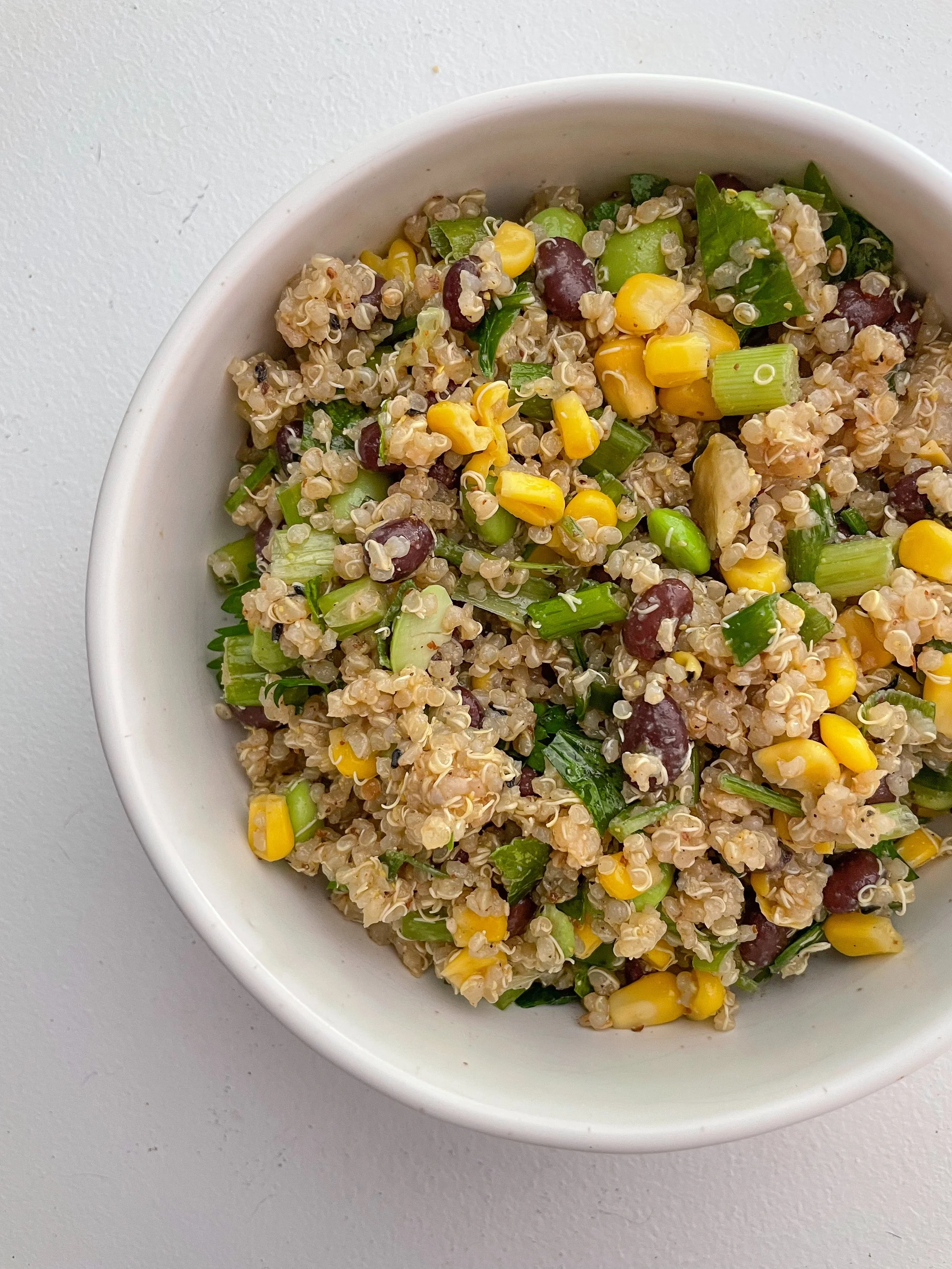Transit Time Test For Motility and Gut Health

I ask every new client of mine to do a transit time test! This is such an informative free at home test to give us insights into the speed of which food is moving through your intestinal tract. If it’s too fast, your body doesn’t have enough time to absorb nutrients and you may have looser stool. On the flip side, if it’s too slow, you may be constipated and not fully emptying your bowels. Yes, even if you go daily, it could be older food that your seeing. If food sits in the stomach or colon too long, you’ll likely have symptoms. Bacteria can start to multiply or food that isn’t fully broken down starts to ferment leading to gas and bloating.
One explanation for weak digestion and food not fully breaking down, is lower stomach acid. Most people with acid reflux are told by doctors they have high stomach acid and then they’re put on proton pump inhibitors (PPIs). This makes me so sad because it’s often inaccurate and it happens ALL the time in our western medical world. An under active stomach is actually a lot more common than an overactive stomach!
Symptoms of low stomach acid or weak digestion
- bloating
- heartburn
- constipation
- low iron
- gas
- loose bowel movements
-nausea
- skin flares
- getting candida
- low energy levels
- low B12
- having high levels of H. pylori
If your motility is slow then food is going to be sitting inside your colon for too long. The food will start to ferment, you’ll get bloated and an overgrowth of opportunistic bacteria will start to flourish. I see this all the time on the GI-MAP stool test I offer in my private practice.
How to do it:
eat 1 cooked beet (you should have red stool) or 1-2 tbsp of sesame seeds in a glass of water or 1/2 cup partially chewed corn
remember the time you had this for dinner
when you see them in your bowel movement, record the time
when did you last see them in your bowel movement? (for some people they see it twice), record the time
How much time elapsed between consumption at dinner and seeing the food in your bowel movement?
The goal is between 12-24 hours. If you’re at 10-12 hours for example, that means things are moving too quickly and you may not be absorbing certain nutrients and may have an overactive stomach. This happens often with diarrhea or my IBS-D clients.
If it’s closer to 24 or beyond, things are moving too slowly and you’re like constipated and may even have higher estrogen levels due to beta-glucuronidase. This is seen on the GI-MAP test I offer and informs us if you’re re-absorbing estrogen the body is trying to excrete. I see this often with my clients that have intense PMS symptoms.
Learn more about the DUTCH test here
Ready to improve your gut health and digestion?
Here are a few starting tips:
Drink a warm glass of water upon waking to help stimulate the gastrocolic reflux so you have a morning bowel movements
Don’t skip eating breakfast
Include ginger tea (root cut up or tea bags) for motility and dandelion root for constipation
Mint tea is great to help with the gas if present
Ensure you don’t eat too close to bedtime. If you don’t get a 12 hour break overnight then your migrating motor complex (MMC) doesn’t have time to sweep the intestinal tract. I’m guilty of always snacking and this doesn’t help my digestion
Are you hitting your fibre goals? The Canadian Food Guide suggest 25g for women, 38g for men. Most Canadians only get the RDI, but I strive for 40-50g of fibre per day for blood sugar support, feeding beneficial bacteria which reduces inflammation, cardiovascular health, reducing cancer risk and having good bowel movements.
If you’d like more support with your health and nutrition, head to services to learn more.
I work with clients all over the world thanks to virtual consults and testing shipped to your door.

Your guide to everything you need to know about protein. How much protein you need, meals ideas, plant-protein foods and perimenopause.
As a gut health nutritionist, I give you practical tips, plant-based foods high in iron and a recipe. I also explore reasons why your ferritin may be low.
There are so many different types of magnesium, it’s overwhelming. Thanks to my work experience student, we have complied a chart and a description of each type so you can make an informed decision. Curious to learn your magnesium levels, book in for a hair mineral analysis test.
A week of gut health tips to get your microbiome thriving! Easy to incorporate with a focus on diversity and plants by Jordan Bruce, a holistic nutritionist.
There is so much misinformation about soy consumption. Read why this nutritionist, Jordan Bruce, recommend you eat soy food.
Great for period pain, inflammation, liver detoxification, gut health protocols and hormone balance
Everything you need to know about flax! Why you should include it in your diet and how to prepare
Want to include more plant protein for health reasons? Not sure where to start? Here’s 9 of my favourite plant protein sources and my thoughts on each one!
Paleo? Keto? Let’s stop these short term diets and move towards something more sustainable. My top 6 gut health tips to ease into 2024
Everything you need to know about the bacteria H. pylori and how to support it naturally
Let’s dive into how you can improve constipation, I’ve got a tip for you! Cover image thanks to the book, Gut.
Your nervous system impacts your IBS, digestion, hormones and mood! Read up about the vagus nerve with actionable tips you can take today.
1/10 are diagnosed with endometriosis and it often takes a decade to get a diagnosis. Learn the symptoms here in this blog post!
Read this list to ensure you’re supporting your hormones! Food is powerful and can impact our sex hormones.




























